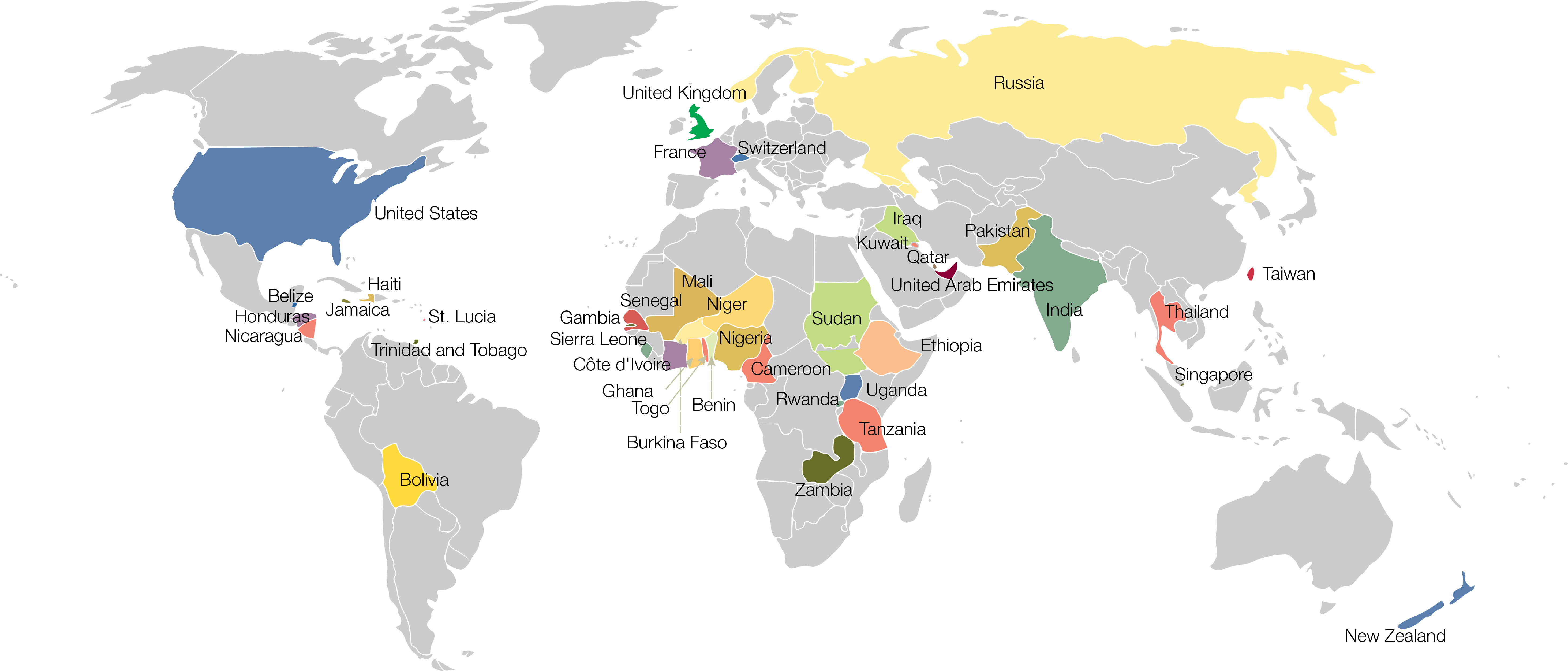The Georgia Tech Center for Health and Humanitarian Logistics (HHL) has launched a new professional education certificate program. The three-course program draws audiences from tactical and strategic members of non-governmental organizations, companies involved in humanitarian relief or health delivery, domestic or foreign government employees or public health officials, foundation members, donors, and other individuals interested in health and humanitarian topics. The goal of the program is to enhance the knowledge and experience of participants on logistics and supply-chain topics related to a broad range of activities including preparing, responding to, and recovery from natural and man-made disasters, as well as ongoing humanitarian crises due to war, famine, infectious diseases, and chronic health problems.
Participants who attended the first two courses earlier this year have lived or worked in countries all over the world. Their experiences both in the United States and other countries motivated them to learn how to take a systematic approach for more efficient and effective decision-making in challenging situations. Among current participants in the program, Amy Coombe commented that “this course elevates the rigor” with which she can “determine efficient mechanisms and strategies to make the best use of limited resources.” Some of the participants, including Chris Knobel mentioned that most of their experiences have been hands-on and learned from other logisticians. “It was fascinating listening to the complexities of modeling and forecasting and its benefit for decision making. I personally feel that having a basic understanding of the concepts will benefit my own knowledge of logistics,” said Knobel. “There are very few courses in the world that address the concepts that this class did.”
The program consists of three courses:
(1.) Pre-planning Strategy for Health and Humanitarian Organizations (2 days)
(2.) Tactical Decision Making in Public Health and Humanitarian Response (2.5 days)
(3.) Systems Operations in Health and Humanitarian Response (2.5 days)
Each course is currently offered once a year in January, May, and September, respectively. Participants who successfully complete the requirements of all three courses receive a certificate from Georgia Tech in Health and Humanitarian Logistics. Course topics include demand management and forecasting, procurement, inventory management, distribution, network design, strategies for allocating limited resources, collaboration and coordination, and measuring and evaluating system performance.
The learning experience is maximized through a blended delivery format, consisting of pre and post-course online modules, mixed with face-to-face instructor-led classroom time. The participants found the course to be a great learning experience as well as truly engaging, and also commented that the lectures, worksheets, and discussions were relevant to their work. Referring to one of the hands-on exercises in the class, Nancy Brockway from the American Red Cross explained how the program helped her “understand how the variables impacted decision making, and after plugging it into the model, seeing that the logic to my thinking worked.”
Participants greatly enjoy and benefit from the interactions in the classroom. “I learned a lot from colleagues from other fields and countries. Having participants with various backgrounds and from different fields was an incentive for fruitful discussions,” said Simplice Kamdem Takoubo, from USAID/Benin. “The course provided me with new skills that I use daily in my job to increase the efficiency of U.S. Government support in achieving country goals.” said Takoubo. "The participants' strong, varied backgrounds brought together many insightful perspectives," added Christopher Roberts of Critical Angle Enterprises. Shawn Robinson from the Centers for Disease Control and Prevention commented that the “exposure to the varying degrees of expertise and experiences was eye opening and useful.”
The long-term impact of the courses is viewed very positively by the participants, both for their own personal and professional growth, and also in terms of the benefits to their organizations and the constituents they serve. “For my long-term career goals I will have the capacity to contribute in my current position at Direct Relief to expand our capacity and efficiency. Having critical logistics thinking along with a background in public health gives me a unique set of skills to aid in any position I may have,” says Jennifer Lemberger from Direct Relief International. Noah Kafumbe, Supply Chain Manager for International Trachoma Initiative, Inc., believes that the new skills he acquired will enhance his capacity “to contribute to the program design, and strategy development for in-country health supply chain system.” Also commenting on the program’s long-term impact, Amy Patterson from The Carter Center expects “to improve distribution systems and stock management systems for bed nets, malaria treatments and mass drug administration of treatments for neglected tropical diseases” from what she learned from the course.
Scholarship support of these courses is made available through the generosity of The UPS Foundation, Andrea L. Laliberte, and Richard E. and Charlene O. Zalesky. For more information about the scholarships, please visit http://hhls.scl.gatech.edu. To learn more about the program and to register online for a course, visit www.scl.gatech.edu/HHL, or e-mail hhlcourses@isye.gatech.edu.
